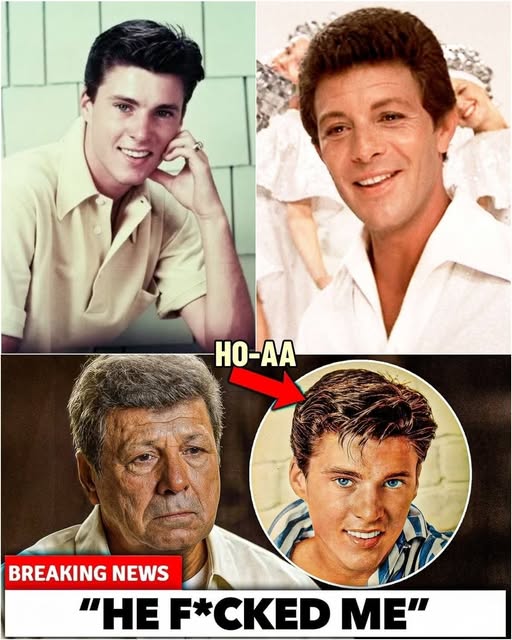Beyond the flashing cameras, the sold-out concerts that left arenas trembling with excitement, and the countless box-office successes that cemented his status as a household name, there lies a story that few ever see—a story not of glitter and glamour, but of resilience, authenticity, and the enduring friendships that gave his life meaning amidst the chaos of fame. It is a story of late-night drives in Los Angeles, of laughter and tears behind closed doors, and of the bonds that remained unshaken despite the storms of celebrity life. Among these bonds, none shines brighter than the one he shared with Ricky Nelson—a friendship that transcended the superficial allure of fame, built on mutual respect and shared experience, forged in the fire of teenage stardom, and tempered by the turbulence and pressures that come with living life in the public eye. Theirs was a connection that reminded them, and everyone who knew them, that true companionship often outweighs the fleeting applause of adoring crowds. This is the story of Frankie Avalon, of Ricky Nelson, and of the cultural era they helped define—a golden period in music and film where talent, charisma, and friendship intertwined to create a legacy that still resonates today.
From the very beginning, Frankie Avalon’s talent did not go unnoticed. By the mid-1950s, record producers and talent scouts alike quickly recognized that this smooth-voiced, strikingly handsome young man possessed the rare combination of qualities that could elevate him from local performer to teen idol overnight. It was not merely his good looks that caught their attention, nor solely the effortless charm with which he commanded a room—it was the complete package: the golden-toned voice that could float over any melody with ease, the magnetic stage presence that made audiences lean in as if caught in a spell, and a natural charisma that suggested a star was born. This unique combination propelled Avalon to the top of the pop charts, delivering timeless hits such as “Venus,” “Why,” and others that would go on to define the sound of a generation, capturing hearts and imagination alike.
Early Days: A Boy from South Philadelphia with Big Dreams
Born Francis Thomas Avalone in South Philadelphia in 1940, Frankie Avalon’s story began far from the limelight he would later command. From an early age, he demonstrated a remarkable musical aptitude that set him apart from his peers. While many children explored instruments as casual hobbies, Avalon’s connection to music was immediate, deep, and unwavering. He gravitated toward the trumpet, drawn by the instrument’s rich, expressive voice, and spent countless hours mastering its intricacies. His dedication was evident: by the time he reached his early teens, Avalon was already performing professionally in local clubs and venues, mesmerizing audiences with a captivating blend of technical skill, raw talent, and a stage presence that belied his age. Whether he was performing a haunting ballad or an upbeat pop number, it was clear that music was not just a pastime—it was a calling.
Frankie’s early experiences in South Philadelphia shaped not only his musicianship but also his resilience. Growing up in a working-class neighborhood, he learned the value of hard work, perseverance, and humility. These formative years instilled in him a grounded sense of self that would carry him through the dizzying highs and inevitable challenges of fame. Surrounded by family, friends, and mentors who nurtured his talent, Avalon’s teenage years were a mixture of rigorous practice sessions, local performances, and dreams that stretched far beyond the familiar streets of his hometown. The stage lights he would one day command were first glimpsed through the smoky interiors of Philadelphia clubs, where audiences cheered not just for a boy with a trumpet, but for a young man with the undeniable spark of greatness.
